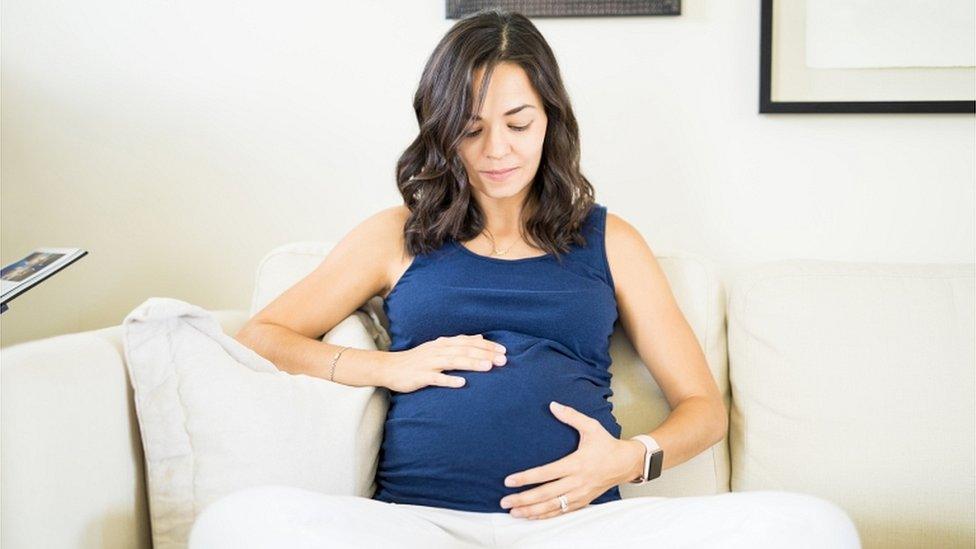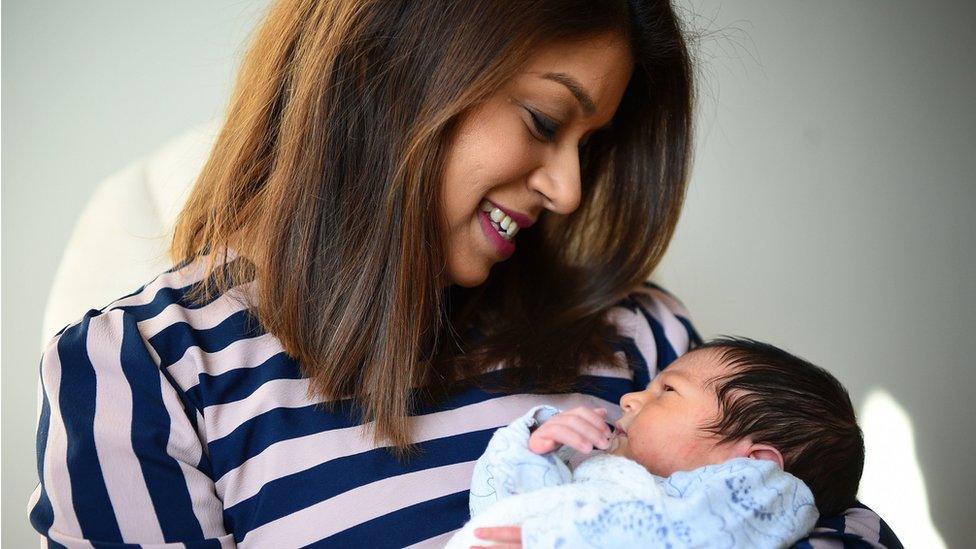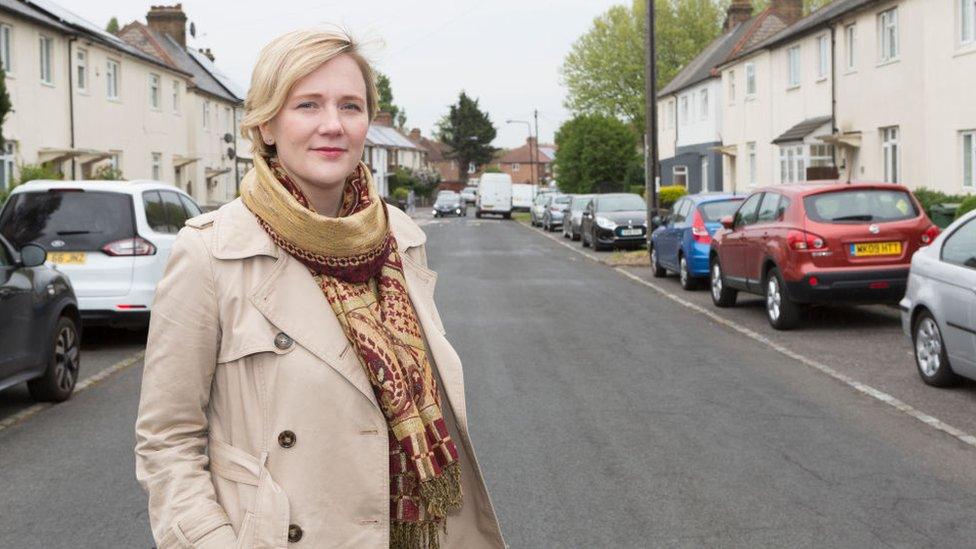MPs' maternity rights: Labour's Stella Creasy speaks out
- Published
Stella Creasy says she led a knife crime meeting following a miscarriage
Women are forced to choose between being an MP and being a mum because of Parliament's rules, a pregnant MP says., external
Labour MP for Walthamstow Stella Creasy says Ipsa - the body which regulates MPs' pay - have made it "impossible" to fulfil her responsibilities to her constituents once her baby is born.
That's because Ipsa does not automatically provide paid cover for MPs on parental leave.
MPs themselves are paid in full for the whole period.
Prime Minister Theresa May has urged Ipsa to "look very closely" at what more support can be provided, adding there was "much more to do" to make Westminster more family friendly.
'Fill the gaps'
Speaking to the BBC's Victoria Derbyshire programme, Ms Creasy said she had tried to "get out of" Ipsa what cover could be provided.
"They told me they don't recognise that MPs go on maternity leave. They then graciously said if I wanted to write an application to prove my worth they would have a think about it and whether they could provide the money," she said.
"MPs either have to hide from their constituents to spend time with their newborn baby or beg their colleagues to fill the gaps.
"This is 2019, not 1919," she said.
Ms Creasy said she had previously suffered miscarriages and was "terrified things might go wrong again".
She said she had continued to attend events in her constituency as she suffered her miscarriages.
Tulip Siddiq: "I asked for a proxy vote, which has never been done in Parliament before."
She told the BBC her colleague, Labour MP Tulip Siddiq, was turned down when she requested extra funding to cover her own maternity leave.
"Tulip is having to take her baby to meetings," she said.
Speaking to BBC Radio 4's Today programme, she said: "It doesn't seem right that communities should be penalised for having a woman as its MP.
"We're giving people another reason not to appoint women to the House of Commons," she added.
Responding to the general issue rather than Ms Creasy's specific case, Ipsa's chair Ruth Evans said: "Ipsa provides additional funding for all MPs' offices to cover absences. To provide MPs with extra money, Ipsa asks for an explanation to be provided of how the additional money would be spent.
"We support proposals to allow maternity cover for MPs, and this would be for the House of Commons to take forward.
"We will work closely with Parliament on any changes they wish to introduce and on providing the funding to support this. The Ipsa Board will be discussing these issues next week, and meeting the Speaker's Committee in July, to support any move by Parliament to assist MPs.
"In the last few years, we have more than doubled the funding available for MPs' dependants to support family life and will continue to strive to modernise our rules."

Maternity rights in the UK
Women are entitled to up to 52 weeks maternity leave
They must take at least two weeks' leave after the baby is born (or four weeks if they work in a factory)
They are eligible to be paid for six weeks at 90% of their average weekly earnings and 33 weeks at £149 per week or 90% of their average weekly earnings (if lower)
Fathers can take two weeks' statutory paternity leave at £149 a week

In January, MPs backed a year-long trial to allow MPs who were about to give birth or had recently become a parent to nominate another MP to vote on their behalf in the Commons.
The debate over Parliament's rules was reignited when Ms Siddiq delayed a Caesarean section to attend a vote on Theresa May's Brexit deal.
Later that month, the Hampstead and Kilburn MP became the first to vote in the Commons by proxy.
In 2017, former Labour deputy leader Harriet Harman called for MPs to be given six months' maternity leave.
- Published13 June 2019

- Published21 May 2019

- Published30 January 2019

- Published29 January 2019

- Published5 September 2018
